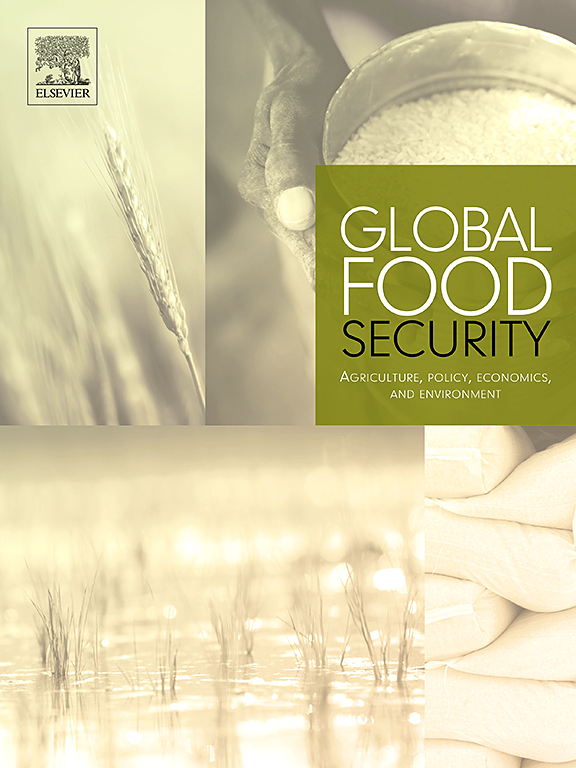蛋白质转型能否带来可持续的粮食系统?
IF 9.8
1区 经济学
Q1 FOOD SCIENCE & TECHNOLOGY
Global Food Security-Agriculture Policy Economics and Environment
Pub Date : 2024-10-16
DOI:10.1016/j.gfs.2024.100809
引用次数: 0
摘要
蛋白质转型一词越来越受到关注,但其具体含义往往并不明确。我们建议蛋白质转型是指动物衍生产品的生产、分工和消费的转型,如何减少这些产品,以及用什么来替代它们,以提高健康水平、减少对环境的影响并提高食品生产的道德水平。提出的解决方案包括高科技肉类和乳制品替代战略、植物育种战略、动物生产战略和生产系统战略,这些方案前景广阔,但也面临着意外的负面影响风险。要利用所提出的解决方案实现可持续的粮食系统:必须减少高收入国家的动物衍生产品,必须采用全膳食方法,必须更好地探索实施路径,最终需要在政策支持下进行粮食系统转型。本文章由计算机程序翻译,如有差异,请以英文原文为准。
Will the protein transition lead to sustainable food systems?
The term protein transition has gained increasing attention but what it concretely means is often unclear. We propose the protein transition to be a transition of the production, division, and consumption of animal derived products, how to reduce them and what could replace them to improve healthfulness, reduce environmental impact, and increase ethical aspects of food production. Proposed solutions including high-tech meat and dairy replacement strategies, plant breeding strategies, animal production strategies, and production systems strategies, are promising but face the risk for un-intended negative consequences. To achieve a sustainable food system utilizing the proposed solutions: animal derived products in high-income countries must be reduced, a whole diet approach is necessary, pathways for implementation must be better explored, and a food systems transformation supported by policy will ultimately be required.
求助全文
通过发布文献求助,成功后即可免费获取论文全文。
去求助
来源期刊

Global Food Security-Agriculture Policy Economics and Environment
FOOD SCIENCE & TECHNOLOGY-
CiteScore
20.90
自引率
3.40%
发文量
69
期刊介绍:
Global Food Security plays a vital role in addressing food security challenges from local to global levels. To secure food systems, it emphasizes multifaceted actions considering technological, biophysical, institutional, economic, social, and political factors. The goal is to foster food systems that meet nutritional needs, preserve the environment, support livelihoods, tackle climate change, and diminish inequalities. This journal serves as a platform for researchers, policymakers, and practitioners to access and engage with recent, diverse research and perspectives on achieving sustainable food security globally. It aspires to be an internationally recognized resource presenting cutting-edge insights in an accessible manner to a broad audience.
 求助内容:
求助内容: 应助结果提醒方式:
应助结果提醒方式:


